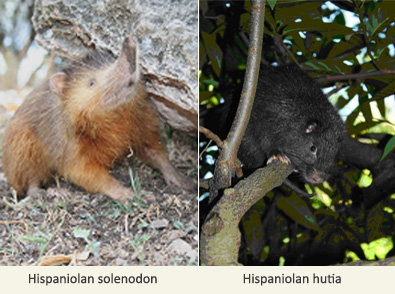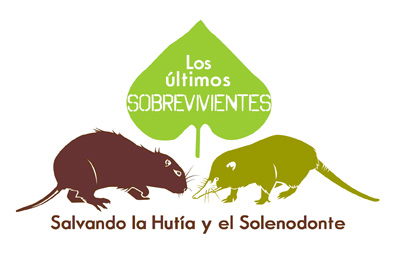The Last Survivors – the race to save the last Caribbean mammal species and their habitats
The Caribbean is widely recognised as extremely species rich while simultaneously facing very high level of threats.
The field project manager for the Hispaniolan Endemic Land Mammals project is Dr Jose Nunez-Mino of the Durrell Wildlife Conservation Trust. He will be presenting a series of talks at Apothecary while visiting the UK. This is a rare opportunity to hear direct from the expert in the field about the challenges, as well as the research and conservation work being carried out on the Island to overcome them. There will be an opportunity to discuss the issues raised at the end of each talk.
To compliment the talks Apothecary will be hosting an exhibition of photographs by some outstanding Dominican photographers. These extraordinary images clearly portray both the beauty and the challenges of this astonishing region.
The pictures will be available to buy; all the money raised from their sale and from ticket sales for the talks will go towards “The Last Survivors” conservation project.
TALKS:
Venue: Apothecary 33 Greyhound Road, London W6 8NH.
Website: www.londonapothecary.co.uk
Email: info@londonapothecary.co.uk
Tel: 020 7381 5727
Ticket Prices: £15 or £25 for two. Concessions £10 or £17 for two
Includes entry to the exhibition and a drink
Numbers are limited to 27 per talk
Wednesday 7th July 7.30pm
Speaker: Dr. Samuel Turvey
Research Fellow, Institute of Zoology
Author of Witness to Extinction: How we failed to save the Yangtze river dophin
Https://www.zsl.org/science/ioz-staff-students/turvey,1107,AR.html
“The last Caribbean survivors” – The Caribbean was a hotspot for mammal diversity before the arrival of man. Of the original 120 species which were unique to this part of the world only 15 are thought to survive to this day. The island of Hispaniola (Haiti and Dominican Republic) provides one example of how these unique species have disappeared across the Caribbean islands. Of the original 25 land mammals (not including bats) on Hispaniola only two species survive to this day, the Hispaniolan Solenodon and Hutia. These two species are found nowhere else on earth and are special for many reasons apart from the fact that they are the last survivors. Both have a very ancient heritage, the solenodon in particular can be truly referred to as a living fossil. Solenodon are also one of the few mammal species to produce toxic saliva which they can inject into their insect prey by means of a grooved tooth.
Friday 9th July 7.30pm
Speaker: Dr Jose Nunez-Mino
Field project manager, Durrell Wildlife Conservation Trust
“The human-wildlife conflict” – It has been known for some time that islands are far more vulnerable to extinctions than mainland areas, but why is the human impact so much greater on islands? Using the example of Hispaniola (Haiti and Dominican Republic) and with a focus on the last two endemic non-flying land mammals (Solenodon and Hutia) this talk outlines some of the threats being faced by both wildlife and their associated habitats on the island. From hunting through to deforestation and other less obvious but just as destructive threats – the challenge is a massive one for everyone involved in conservation efforts on the island.
Wednesday 14th July 7.30pm
Speaker: Dr Jose Nunez-Mino
Https://www.thelastsurvivors.org/people/
“One Island – Two Stories“: The Island of Hispaniola is shared by two neighbouring countries, Haiti and the Dominican Republic. Neighbours they may be but in many ways they are worlds apart in terms of culture, development and the state of their environment. Haiti is hailed as an example of what can happen if overexploitation is left unchecked while the Dominican Republic has nearly 30% of its land within protected areas. Regardless of many of the differences that will be raised during this talk, the future of both countries is intricately tied together. Three main questions will be addressed from the conservation perspective: What events have led to the present environmental state of Hispaniola? What is the state of play today? And what future challenges and solutions are there?




